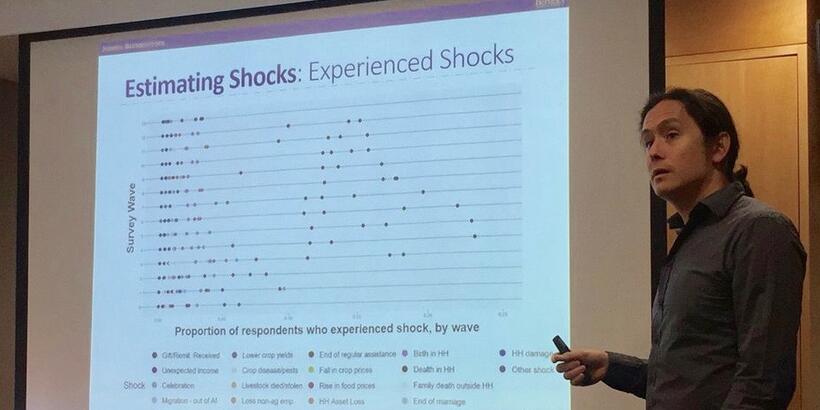
Accurate and timely estimates of population characteristics are a critical input to research and policy, but reliable data is often scarce in developing and conflict-affected regions. In recent work, we have shown how machine learning algorithms can be applied to mobile phone metadata to infer fixed characteristics of individual subscribers, such as wealth and gender. Here, we describe efforts to extend this approach to a non-stationary regime, to detect and measure changes in an individual's welfare over time. For this study, we tracked 1200 Afghan citizens with high-frequency panel surveys, and matched each person's responses to psuedonymized transactions log of mobile phone activity. Preliminary results indicate that it is possible to detect negative shocks (e.g., violence), and positive shocks (e.g., receiving a gift) from the mobile phone records alone. This suggests the possibility of real-time tracking of vulnerability, and new paradigms for program monitoring and impact evaluation.
Speaker Bio:

